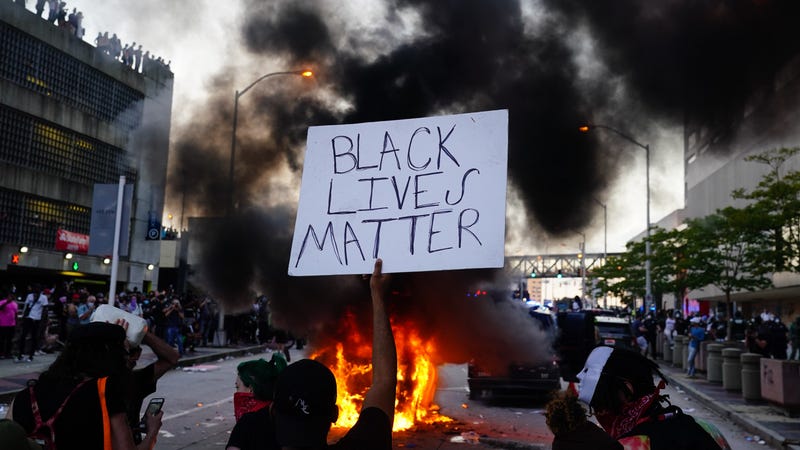
The Black Lives Matter movement was started in 2013 after George Zimmerman was acquitted in the killing of 17-year-old Trayvon Martin, and has continued to make a national impact following the countless acts of violence against unarmed Black people in the United States.
The foundation's influence across the country grew drastically following the death of George Floyd in Minneapolis in May 2020, and now some are questioning the group's finances after it took in about $90 million in 2020, according to the Associated Press.
In 2020, the BLM foundation ended with a balance of more than $60 million after committing $21.7 million in grant funding to both official and unofficial BLM chapters, in addition to 30 Black-led local organizations.
It spent more than a quarter of its assets on operating expenses, grant funds, and other charitable giving.
"They collected some $30 million off of the death of George Floyd, a Black man killed by police. And they’ve put not one dollar in our community," Rev. Jerry McAfee, a pastor at New Salem Missionary Baptist Church, said.
Patrisse Cullors, co-founder of Black Lives Matter and head of the Black Lives Matter Global Network Foundation, announced in May 2021 that she would step down amid questions about the foundation's finances and her personal finances.
"I’ve created the infrastructure and the support, and the necessary bones and foundation, so that I can leave," Cullors told AP. "It feels like the time is right."
Cullors reportedly took a large salary from the foundation and was able to purchase a home in southern California in the spring of 2021.
The foundation said in April 2021 that prior to 2019, Cullors was a volunteer executive director and "received a total of $120,000 since the organization’s inception in 2013, for duties such as serving as spokesperson and engaging in political education work."
"As a registered 501c3 non-profit organization, (the foundation) cannot and did not commit any organizational resources toward the purchase of personal property by any employee or volunteer," the foundation said in a statement. "Any insinuation or assertion to the contrary is categorically false."
Rev. T. Sheri Dickerson, president of an Oklahoma City BLM chapter, is also a representative of the group #BLM10, which has criticized BLM over the funding and its financial transparency. She believes that some of the money should have been given to families of Black victims of police brutality that are in need of help.
"That is the most tragic aspect," Dickerson said.
"I know some of (the families) are feeling exploited, their pain exploited, and that’s not something that I ever want to be affiliated with," Dickerson added.
#BLM10 has claimed that most of its chapters have not received much, if any, financial support from BLM since 2013. They rejected the foundation's funding in 2020 and said that only a few of the 10 chapters are officially recognized.
Prior to stepping down last year, Cullors disagreed with #BLM10 after they said the money they were given in comparison to how much BLM raised was unfair.
"Because the BLM movement was larger than life — and it is larger than life — people made very huge assumptions about what our actual finances looked like," Cullors said. "We were often scraping for money, and this year was the first year where we were resourced in the way we deserved to be."


